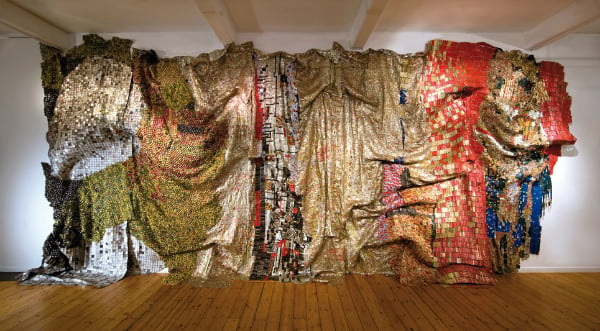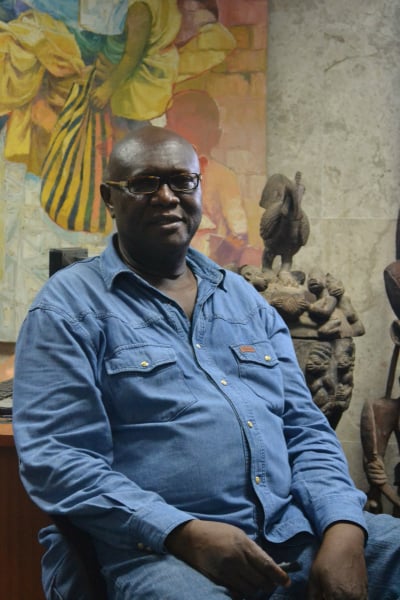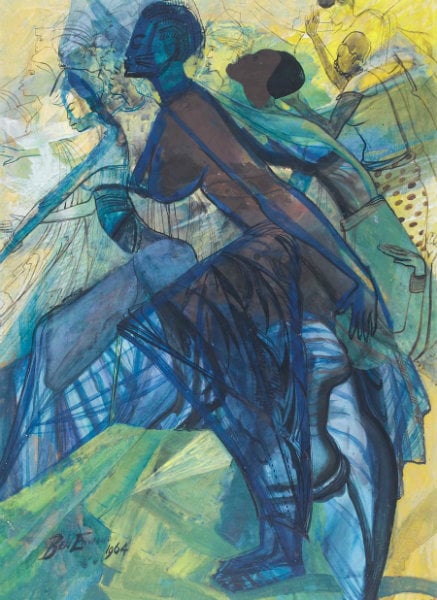Auctions
Experts Say Nigeria Will Lead Upcoming African Art Market Boom
Some lots have seen fivefold returns.

Photo: courtesy October Gallery.
Some lots have seen fivefold returns.

Amah-Rose Abrams

An African art market boom is on the way, Bloomberg Business reports.
In the wake of increasing global attention, there is now proof in numbers. In 2007, an unnamed client of Bonhams consigned a group of works by Nigerian artist and sculptor Ben Enwonwu, which were put up for sale with a group of unrelated paintings. When one sold for $30,670, this set off a “lightbulb moment,” Bonhams director Giles Peppiatt told Bloomberg. The auction house then began devoting specific sales to African art.
“Interest in contemporary African art has exploded, particularly among international collectors, who expect it to be the next market where values increase in the same manner as contemporary Chinese art,” Peppiatt later told the Telegraph.
“African art is a bull market and one’s investment is liable to return a handsome profit, and certainly the past eight years have demonstrated that,” he said in a presentation at the Alara African luxury store in Lagos, designed by architect David Adjaye. “Nigeria has certainly led the way in this revolution with the artists and prices that have dominated the results coming from Africa.”

Yemisi Shyllon.
Photo via: Bloomberg Business.
The market is being bolstered by a wealthy elite and increased recognition of African artists internationally (see Mega-Rich Nigerian Ex-General’s Son Makes Art World Splash). Since specializing in African art sales, some lot prices at Bonhams have increased nearly fivefold, according to Bloomberg.
In 2014, Sotheby’s France saw record sales in African and Oceanic art, with a Muminia Lega mask raking in €3,569,500 ($4.4 million).
Yemisi Shyllon, a Yoruba prince, intends to open a private museum in Lagos to display the thousands of works in his collection.
“Art is […] a status symbol and investment,” Shyllon told Bloomberg. “It will get much, much bigger and then it becomes dangerous for people like me to keep works of art in my house.”

Ben Enwonwu, Abstract Figure of a Woman (date unknown).
Photo via: Trip Down Memory Lane.
London-based October Gallery has specialized in artists from the African continent and diaspora since 1982.
“Technology has changed things dramatically, because artists who live in remote areas have access to information, to other artists, to other galleries,” artistic director Elisabeth Lalouschek told Bloomberg.
In the last few months, there has been increased attention given to African art by western art institutions and fairs (see Art Basel in Basel Announces Talk Program with Focus on Africa). But, while investment is key to creating a healthy art market, what will the impact of people swooping in internationally to make a profit have on what has always been a healthy and productive creative community? (see 1:54 Contemporary African Art Fair Is Full of Good Art and Tough Questions).